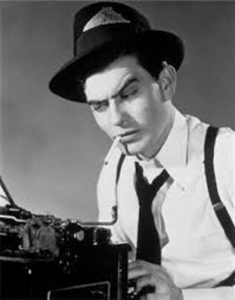
Roger Roots. Antigovernment News Bureau.
THE ENTIRE WORLD IS DROWNING IN TOO MUCH GOVERNMENT
We often think we are in an age of technological advancement. But the growth of cops, taxes and government regulations have strangled true scientific advancement.
Peter Thiel, the founder of PayPal and other enterprises, was in a friendly debate with the great futurist George Gilder on the Stanford campus in March 2012. (I recently saw the video for the first time and found it so compelling I had to share my thoughts. –RR)
The Thiel/Gilder debate may have been the debate of the century.
According to Thiel the speed of scientific advancement has slowed since the 1970s—despite obvious advancements in computers and digital technology. In many industries, such as transportation, construction and energy, progress has actually reversed under government regulation.
Transportation moved faster every decade from about the 1500s until the 1970s as humans perfected sails, steam, stirrups, rails and airplanes. But the peak speed of travel—manifested in Concord jets in 1976—ended when government regulations led to the permanent grounding of the Concord in 2003. TSA screening at airports has meant air travel is slower today than in the 1960s.
Similarly, the peak of space travel was in the 1970s, and few advancements have occurred in the years since despite governments spending billions on space programs.
New discoveries in rocketry or nuclear technology are now mostly banned by governments.
Medicine technology exploded throughout the nineteenth and twentieth centuries. But today there are only 1/3 as many drugs under the FDA’s approval process as during the 1980s. (Libertarian scholar Mary Ruwart has shown that the FDA approval process has caused millions of people to die prematurely.) Congress declared ‘War on Cancer’ in 1970 but cancer rates have slowed only modestly after billions of dollars of government spending and thousands of pages of government regs and proclamations.
Real median wages have been stagnant since the government “War on Poverty” in 1973. Humans have made little progress toward curing diseases such as Alzheimers since government began taking over health care.
Thiel notes that the Golden Gate Bridge took 3 years to build during the 1930s but that a single access ramp to the Bridge now takes 7 years and costs the same in real dollars as the original bridge—due to government impositions. The Empire State Building was built in 1-1/2 years during the Great Depression but the recent World Trade Center reconstruction took 10 years.
Shockingly, there are now a hundred times more “scientists”—almost all funded by governments at government agencies and colleges—than in yesteryear. Yet productivity per scientist is less than one percent of what it was a century ago. (In some fields, government “science” has utterly stalled growth in real learning; witness the hoax of apocalyptic climate science—driven by socialism and government expansion. –RR.)
George Gilder, for his part, mostly agreed with Thiel regarding the stifling role of government. Gilder points to a 30 % tax on candles by the British government in the early 1800s which brought advancements in lighting to a standstill until the Rockefeller (fossil fuel) era a half-century later.











